February 06, 2020 | Nora Samaranayake
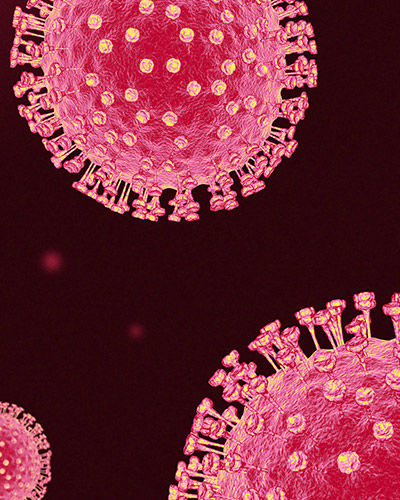
The GVN, with support from the IHV, Is Bridging Gaps in the Global Emergency Response and Serving as a “Go-To” Resource for Members Needing Assistance in Obtaining and Disseminating Cutting-Edge Scientific Research
The Global Virus Network (GVN), headquartered in Baltimore, Maryland and representing 53 Centers of Excellence, including the Institute of Human Virology at the University of Maryland School of Medicine, and 9 Affiliates in 32 countries comprising foremost experts in every class of virus causing disease in humans and some animals, is holding regular strategic discussions with its members regarding the growing novel coronavirus, known as 2019-nCoV, which originated in Wuhan, China this past December. The GVN has identified areas to support its Centers and work with international organizations addressing the growing epidemic.
"GVN Centers of Excellence and Affiliates, with strong working relationships among them, are poised to engage in any outbreak situation by providing the world’s only network of top basic virologists from around the globe covering all classes of human viral threats,” said Christian Bréchot, MD, PhD, President of the GVN, and a Professor at the University of South Florida. “Many members of the GVN are initiating various projects regarding diagnostics, vaccines and therapeutics to combat this rapidly expanding, novel, outbreak. However, there are still resource needs and information gaps that need to be filled, and GVN is helping to serve as that important resource. In particular, we have engaged GVN Africa to foster collaborations on diagnostics and other important resource needs."
"We are organizing a workshop for the diagnosis of 2019-nCoV in Dakar for 15 countries in a joint partnership with Africa Centres for Disease Control and Prevention (Africa CDC) in collaboration with the World Health Regional Office for Africa and the West African Health Organization before the epidemic arrives,” said Amadou Alpha Sall, PhD, General Administrator, Institut Pasteur in Dakar, the region’s top biomedical research facility, and Member, Global Virus Network (GVN). “We are contributing to build ‘the Africa We Want’ in 2063 Africa agenda, while making sure that we anticipate the threat rather than reacting to it. This is a new model of work for Africa under the leadership of Africa CDC catalyzed by Ebola and other outbreaks that may change the public health practice in Africa in the coming years."
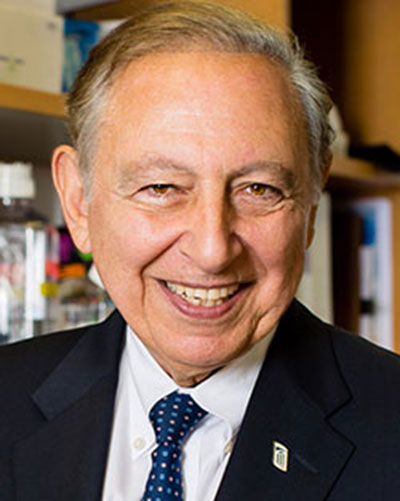
2019-nCoV has spread to other global regions, including Hong Kong, Macao, Taiwan, Australia, Belgium, Cambodia, Canada, Finland, France, Germany, India, Italy, Japan, Malaysia, Nepal, Philippines, Russia, Sri Lanka, Singapore, South Korea, Spain, Sweden, Thailand, The Republic of Korea, United Arab Emirates, United Kingdom, United States and Vietnam. As of Thursday morning, February 6, there are over 28,000 infected and more than 560 dead, while the rest of the world reports more than 260 confirmed cases and two deaths outside of mainland China. The numbers are likely higher.
On January 29, The Peter Doherty Institute for Infection and Immunity (Doherty Institute), a GVN Center of Excellence, in Melbourne announced that, for the first time outside of China, they successfully grew 2019-nCoV from a patient sample in the laboratory, and were the first to share the virus with public health laboratories globally and the World Health Organization. This provides those laboratories, including those within the GVN, with crucial information to help combat the virus.
Mike Catton, MB BS, FRCPA, Deputy Director of the Doherty Institute and Member of the GVN, said that possession of a virus isolate extended what could be achieved with molecular technology in the fight against this virus.
The Doherty Institute-grown virus is expected to be used to generate an antibody test, amongst other uses, which allows detection of the virus in patients who haven’t displayed symptoms and were therefore unaware they had the virus.
"An antibody test will enable us to retrospectively test suspected patients so we can gather a more accurate picture of how widespread the virus is, and consequently, among other things, the true mortality rate," said Dr. Catton.
On January 23, after Chinese researchers published the sequence of 2019-nCoV, a GVN partner, the Coalition for Epidemic Preparedness Innovations (CEPI), announced that it will fund three vaccine initiatives with $12.5 million, including GVN Center of Excellence, the Australian Infectious Diseases Research Centere at the University of Queensland (UQ). Further, on February 3, CEPI and GSK announced that GSK will make its established pandemic vaccine adjuvant platform technology available to enhance the development of an effective vaccine against 2019-nCoV. Adjuvants are added to a vaccine to boost the immune response to produce more antibodies and longer-lasting immunity, thus minimizing the dose of antigen needed.
“The University of Queensland's ‘molecular clamp technology’ provides stability to the viral protein that is the primary target for our immune defense,” said Paul Young, PhD, Head of the School of Chemistry and Molecular Biosciences at UQ, Australia and Member of the GVN. “The technology has been designed as a platform approach to generate vaccines against a range of human and animal viruses and has shown promising results in the laboratory targeting viruses such as influenza, Ebola, Nipah and MERS coronavirus. The availability of the GSK adjuvant will enable us to carry out important pre-clinical experiments designed to assess vaccine effectiveness.”
Other GVN researchers are sourcing their MERS and SARS coronavirus expertise to advance vaccine development for this new outbreak. “With our experience and novel contributions to the MERS and SARS outbreaks as well as the deadly zoonosis influenza viruses, H7N7 and H5N1, we are working to develop a vaccine against this new, novel coronavirus,” said Ab Osterhaus, PhD, DVM, Director of the The Research Center for Emerging Infections and Zoonosis (RIZ) at the University of Veterinary Medicine in Hannover, Germany, a Center Director of the GVN, and CEO of Artemis One Health Foundation, Germany. “Specifically, we are poised to study T-Cell and IgM antibody response using our expertise in animal models.”
Linfa Wang, PhD, Director of the Programme in Emerging Infectious Diseases at Duke-NUS Medical School and a Center Director of the GVN, Singapore, is developing diagnostics for 2019-nCoV with collaborators in China. Dr. Wang, who sequenced and named Australia’s bat-borne Hendra virus more than 25 years ago, has obtained multiple isolates of the virus, and is focused on studying serology and cross-reactivity and contamination on diagnostics. Dr. Wang believes the deadly new coronavirus “appears to be more infectious than the 2003 SARS coronavirus.” Further he warns, “Despite the possibility for criticisms of an overreaction, it is imperative that we act quickly and effectively, as the alternative of an underreaction could potentially lead to more deaths worldwide.”
“We are funneling resources towards this new novel virus research on animal infection, transmission and reservoirs,” said Joaquim Segalés, DVM, PhD, Researcher from the Centre de Recerca en Sanitat Animal (CReSA), Spain and a Center Director of the GVN. “We also have a number of reagents against MERS available, and are waiting to receive isolates of the virus, hopefully from our GVN colleagues.”
“Our GVN colleagues in Melbourne at the Doherty Institute are shipping a sample of this new novel virus as we speak,” said Johan Neyts, PhD, Professor of Virology, Rega Institute for Medical Research at the University of Leuven and a Center Director of the GVN. “We are developing a dual yellow fever/2019-nCoV using our revolutionary Plasmid Launched Live Attenuated Virus (PLAV) technology based. We managed recently to do the same with yellow fever and other viruses such as Lassa and rabies. Further, using our fully automated high biosafety laboratory we are leading an intensive research effort to develop therapeutics against 2019-nCoV.”
“The GVN wishes to help and collaborate with other scientists globally, and especially to include the China GVN and China CDC, whose scientists, under the leadership of Dr. George F. Gao, have made important initial contributions to the genomic characterization and epidemiology of this deadly virus,” said Robert Gallo, MD, Co-Founder and Chairman of the International Scientific Leadership Board of the GVN. Dr. Gallo is also The Homer & Martha Gudelsky Distinguished Professor in Medicine and Director, Institute of Human Virology (IHV) at the University of Maryland School of Medicine, a GVN Center of Excellence.
About the Institute of Human Virology
Formed in 1996 as a partnership between the State of Maryland, the City of Baltimore, the University System of Maryland, and the University of Maryland Medical System, the IHV is an institute of the University of Maryland School of Medicine and is home to some of the most globally-recognized and world-renowned experts in all of virology. The IHV combines the disciplines of basic research, epidemiology, and clinical research in a concerted effort to speed the discovery of diagnostics and therapeutics for a wide variety of chronic and deadly viral and immune disorders - most notably, HIV the virus that causes AIDS. For more information, visit www.ihv.org and follow us on Twitter @IHVmaryland.
About the Global Virus Network (GVN)
The Global Virus Network (GVN) is essential and critical in the preparedness, defense and first research response to emerging, exiting and unidentified viruses that pose a clear and present threat to public health, working in close coordination with established national and international institutions. It is a coalition comprised of eminent human and animal virologists from 53 Centers of Excellence and 9 Affiliates in 32 countries worldwide, working collaboratively to train the next generation, advance knowledge about how to identify and diagnose pandemic viruses, mitigate and control how such viruses spread and make us sick, as well as develop drugs, vaccines and treatments to combat them. No single institution in the world has expertise in all viral areas other than the GVN, which brings together the finest medical virologists to leverage their individual expertise and coalesce global teams of specialists on the scientific challenges, issues and problems posed by pandemic viruses. The GVN is a non-profit 501(c)(3) organization. For more information, please visit www.gvn.org. Follow us on Twitter @GlobalVirusNews
Contact
Institute of Human Virology
Jennifer Gonzales
Public Relations & Communications Manager
jennifer.gonzales@ihv.umaryland.edu
Related stories
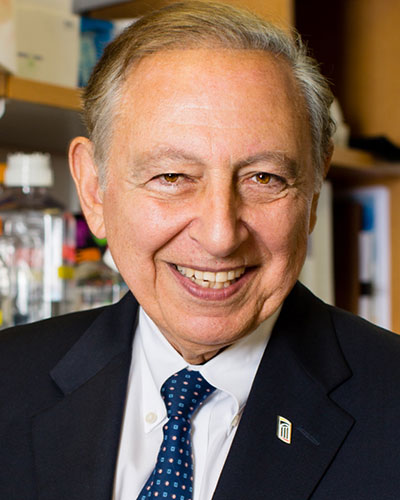
Monday, July 25, 2022
Institute of Human Virology at the University of Maryland School of Medicine Supports First-of-Its-Kind Conference to Evaluate the Public Health Magnitude of Long COVID And Define A Global R
The conference, hosted at the University of Maryland, Baltimore, reviewed the wealth of cohort data on long COVID, constructed a framework to characterize and define the conditions, and identified the most critical and urgent areas of research needed to better understand, diagnose, and treat this developing public health crisis.

Monday, October 12, 2020
WJLA (Washington, DC): How long can you spread coronavirus once infected? We found out.
Social distancing, hand hygiene and face masks can help curb the spread of the highly contagious coronavirus but if you do get sick, how long can you spread COVID to others? 7 On Your Side went looking for answers.
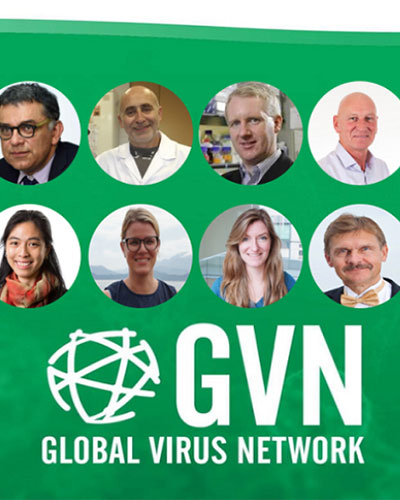
Wednesday, September 30, 2020
GVN’s Top Virus Experts Meet Together To Identify Most Promising Advances To Battle COVID-19 & Strategies To Prepare For Future Pandemics
Rapid Diagnostic Testing, Repurposing Drug Therapies and Vaccines Targeting Innate Immunity, Are Integral Factors in Mitigating COVID-19. The Global Virus Network (GVN), a coalition of the world’s leading medical and basic virology research centers working to prevent illness and death from viral disease, convened a press conference with attendees from across the globe to discuss key takeaways from the GVN virtual 2020 Special Annual Meeting held September 23-24, 2020.
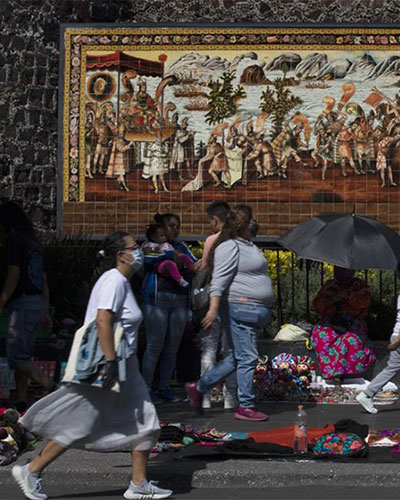
Monday, September 28, 2020
Associated Press: 500 years ago, another epidemic swept Mexico: smallpox
There were mass cremations of bodies; entire families died and the inhabitants of the city, afraid to pull their bodies out, simply collapsed their homes on top of them to bury them on the spot. The scene, beyond even the current coronavirus pandemic, was a scourge brought 500 years ago by Spanish conquistadores and their servants that exploded in Mexico City in September 1520. Smallpox and other newly introduced diseases went on to kill tens of millions of Indigenous people in the Americas who had no resistance to the European illnesses. The viruses later spread to South America, and helped lead to the downfall and overthrow of empires like the Aztecs and Incas. And its lessons remain largely forgotten today.
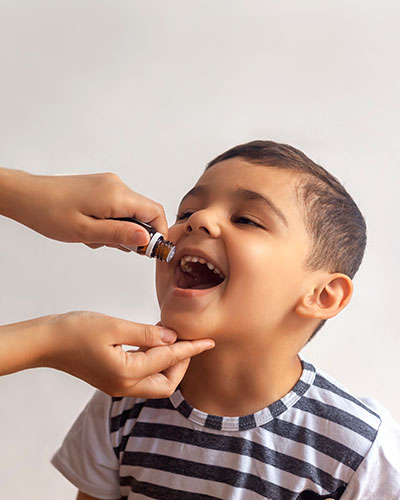
Thursday, June 11, 2020
Global Virus Network Suggests Oral Polio Vaccine May Provide Temporary Protection Against COVID-19
The Global Virus Network (GVN), a coalition comprised of the world’s preeminent human and animal virologists from 53 Centers of Excellence, including the Institute of Human Virology at the University of Maryland School of Medicine, and 10 Affiliates in 32 countries, published a viewpoint in Science today that the stimulation of innate immunity by live attenuated vaccines in general, and oral poliovirus vaccine (OPV) in particular, could provide temporary protection against coronavirus disease 2019 (COVID-19).
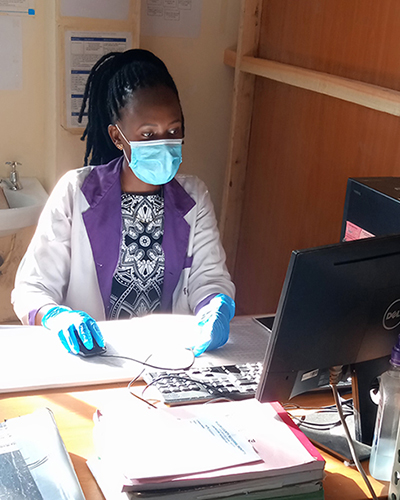
Tuesday, June 02, 2020
UM School of Medicine’s Institute of Human Virology Awarded Grants to Strengthen COVID-19 Response in Sub-Saharan Africa
The Center for International Health, Education and Biosecurity (Ciheb) at the University of Maryland School of Medicine’s Institute of Human Virology was awarded $4 million from the U.S. Centers for Disease Control and Prevention (CDC) to support coronavirus disease 2019 (COVID-19) response activities in Botswana, Nigeria, Malawi, and Mozambique.
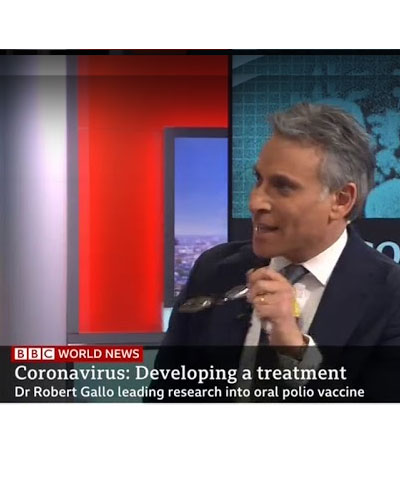
Monday, May 11, 2020
BBC Global News Interviews Dr. Robert Gallo on Oral Polio Vaccine for SARS-CoV-2 and More
Dr. Robert Gallo appeared on BBC World News with Matthew Amroliwala for a one-on-one, lengthy interview during their Coronavirus Explained segment.
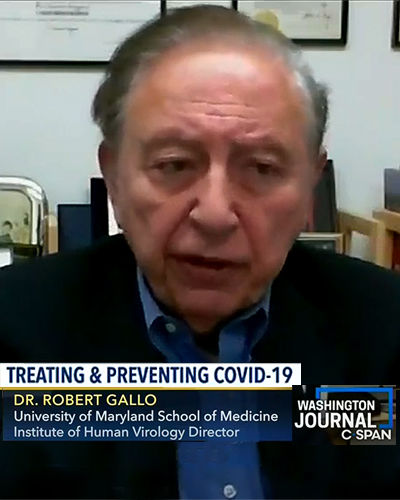
Wednesday, April 29, 2020
Dr. Robert Gallo Appears on C-SPAN’s Washington Journal
Please check out Dr. Robert Gallo’s C-SPAN Washington Journal appearance today to discuss COVID-19 treatments, vaccines, the need for the Global Virus Network, and more.
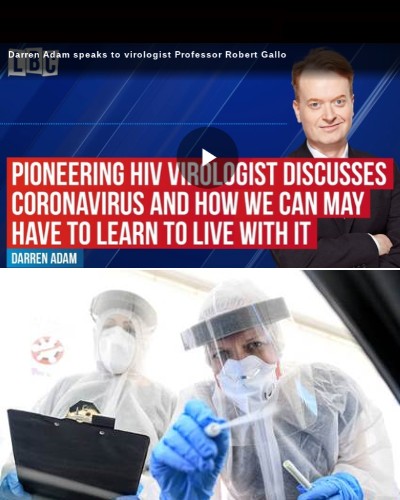
Monday, April 27, 2020
Expert Breaks Down Coronavirus Research: Is it Worse than HIV? Is it Mutating?
IHV Co-Founder and Director, Robert Gallo, MD is interviewed on LBC, a radio station in the United Kingdom. Darren Adam had Professor Gallo on the line to discuss his research in the past and the work he's carrying out during the coronavirus crisis. "We have learned to live with HIV" Darren began, listing out how it has changed from a death sentence to a disease that humans can live a long life with. He wondered if this could be possibly the path we're taking with Covid-19.
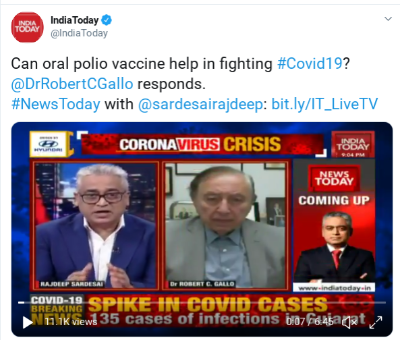
Wednesday, April 22, 2020
Dr. Robert Gallo on India Today Discussing the Oral Polio Vaccine for COVID-19
IndiaToday on Twitter - “Can oral polio vaccine help in fighting #Covid19? @DrRobertCGallo responds. #NewsToday with @sardesairajdeep
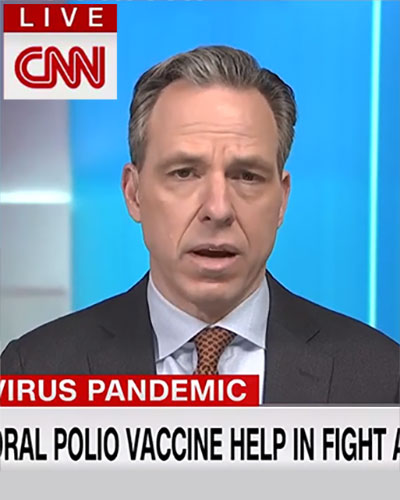
Friday, April 17, 2020
Dr. Robert Gallo Discusses Repurposing the Oral Polio Vaccine on CNN
Dr. Robert Gallo discusses repurposing the oral polio vaccine, drug therapies and more on COVID-19 on CNN’s The Lead with Jake Tapper, April 17, 2020.
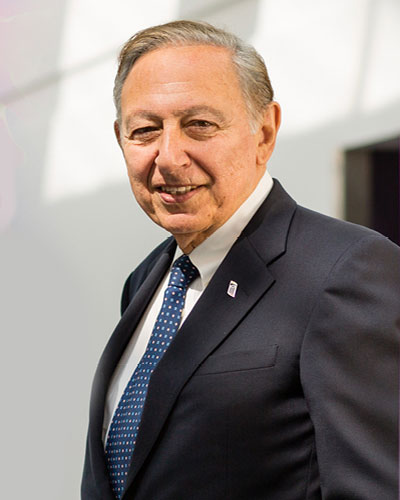
Monday, April 13, 2020
Can an Oral Polio Vaccine Stop COVID-19?
Please see this just released Associated Press article, “Could old vaccines for other germs protect against COVID-19?” with Dr. Robert Gallo (Institute of Human Virology at the University of Maryland School of Medicine) and Dr. Konstantin Chumakov (U.S. Food and Drug Administration), both of the Global Virus Network (GVN).
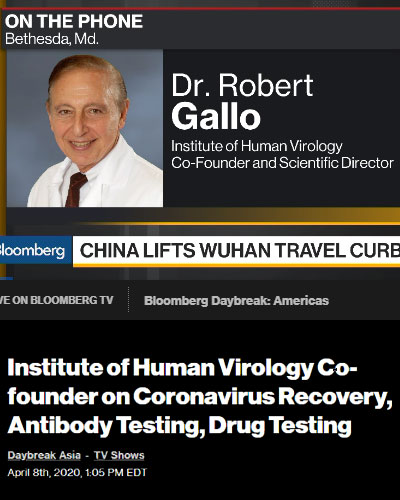
Wednesday, April 08, 2020
Institute of Human Virology Co-founder on Coronavirus Recovery, Antibody Testing, Drug Testing, Bloomberg TV
Dr. Robert Gallo, the Institute of Human Virology at the University of Maryland School of Medicine, Co-founder and director discusses the coronavirus. He speaks with Haidi Stroud-Watts and Shery Ahn on "Bloomberg Daybreak: Asia." (Source: Bloomberg)

Tuesday, April 07, 2020
A Deep Look Into The Coronavirus with Dr. Robert Gallo on WYPR (Baltimore’s local NPR station)
(WNPR) Dr. Robert Gallo has been getting to know viruses-- their targets and their weaknesses--for decades, even before he co-discovered the virus that causes AIDS in the 1980s. At the University of Maryland’s Institute for Human Virology, which he heads, Gallo is looking at the coronavirus; he joins us to share his thoughts. Gallo is also co-founder and international scientific advisor at the Global Virus Network.
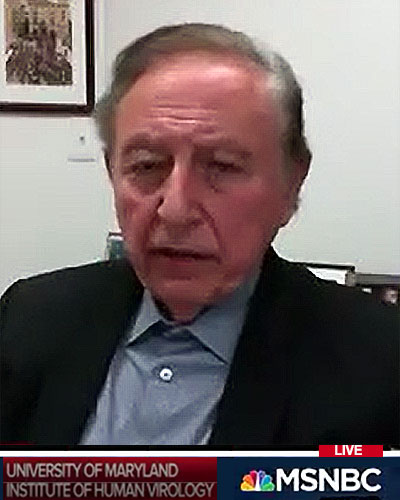
Wednesday, April 01, 2020
Dr. Robert Gallo Featured on MSNBC’s 11th Hour with Brian Williams
Robert Gallo, MD, Co-Founder and Director of the Institute of Human Virology, discusses SARS-CoV-2/COVID-19, specifically, how he thinks the fight against the Coronavirus is going thus far.
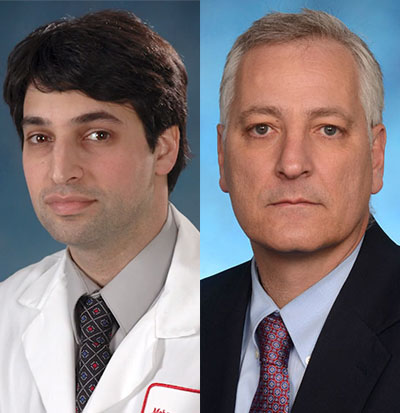
Friday, March 27, 2020
Covid-19 Is Probably Seasonal, But That’s No Reason to Relax (The Washington Post)
Mohammad Sajadi and Anthony Amoroso are associate professors of medicine at the Institute of Human Virology at the University of Maryland School of Medicine and members of the Global Virus Network. As physicians and researchers, we have spoken to doctors across the country over the past few weeks and kept hearing variations on this description of the novel coronavirus’s spread: It’s like a chemical bomb went off. One day everything seemed normal, and the next everyone became sick: patients, nurses, family members.

